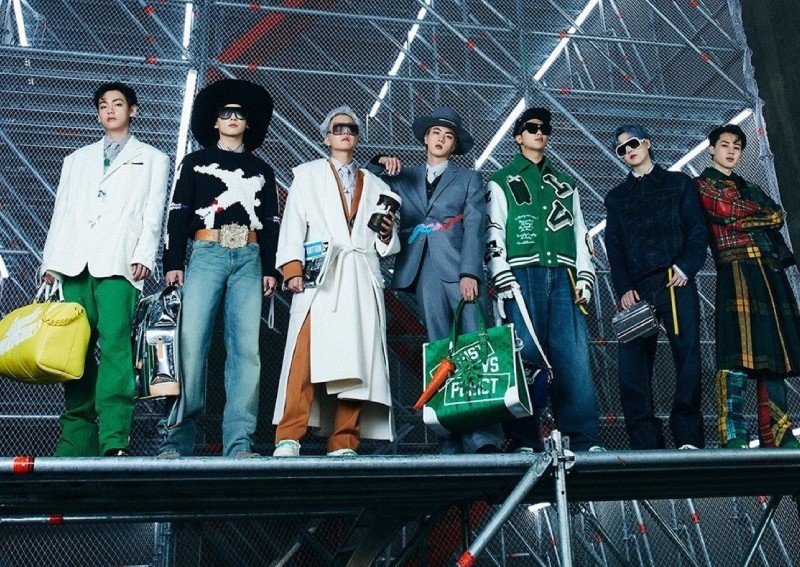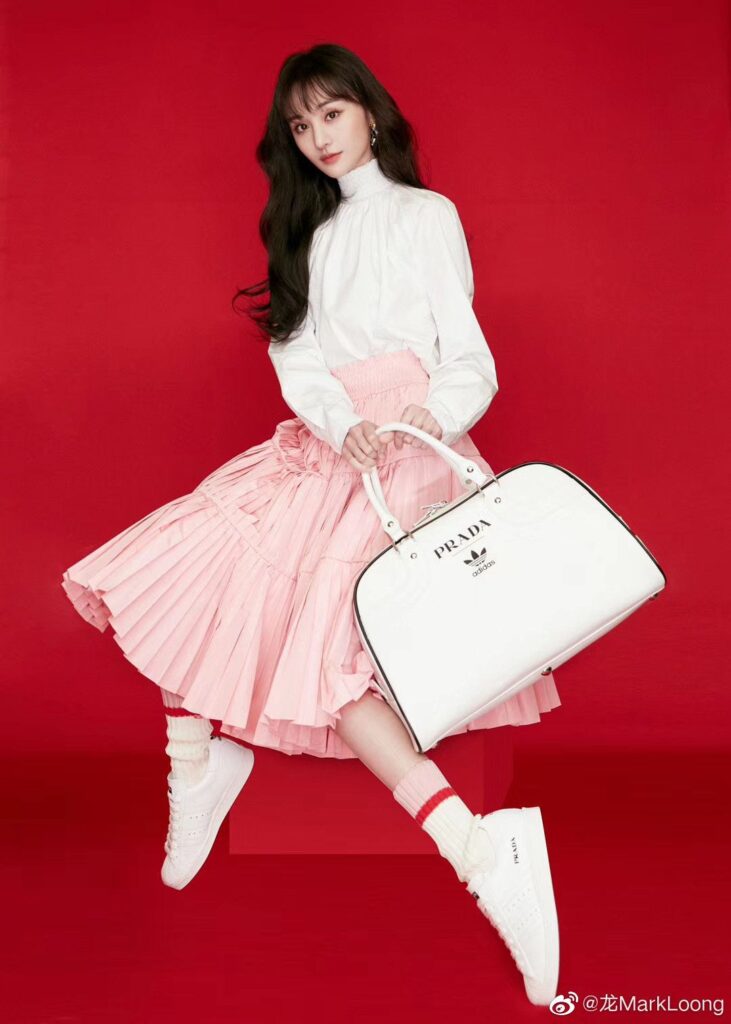Luxury brands become collateral damage of celebrity scandals in China

Louis Vuitton
Rewind to the start of 2021, and pop star Kris Wu had become Bulgari’s most important brand ambassador in China, Louis Vuitton was making headlines for signing South Korean boy band BTS as global brand ambassadors, and Chinese actress Zheng Shuang was busy shooting her first advertising campaign for Prada.
The three luxury brands were convinced that collaborating with such bankable stars was the best marketing move they could make.
And yet, by February, Prada had cut ties with Zheng when a scandal erupted regarding her alleged abandonment of two children born to surrogate mothers in the United States; in August the actress was fined 299 million yuan (S$62 million) by Chinese authorities for tax evasion.
In July, Wu was accused in interviews of date rape by a beauty influencer and immediately dropped by Bulgari and Louis Vuitton, another brand he worked with; in mid-August Wu was formally charged with rape by police in Beijing.

PHOTO: Pinterest
In May, fan groups associated with BTS started vanishing on Weibo, China’s Twitter – and when the Friends TV sitcom reunion special was released in China in June, the group’s guest appearance on the episode was cut out. In a similar vein, Weibo also imposed a 60-day ban on a BTS fan account for illegally raising funds to finance initiatives such as birthday celebrations for members of the group.
Actress Zhao Wei was made the official spokeswoman for another luxury brand, Fendi, in China last year, but she is unlikely to continue in the role after her name was scrubbed from the Chinese internet last week, and films and TV shows she stars in removed from streaming services, without any explanation.
These brands are not alone in finding themselves in the crosshairs of the Chinese authorities, who are seeking to rein in what officials see as the excesses of the entertainment industry.
So how should luxury brands – which owe their existence to the rewards of capitalism, and which famously pay celebrities millions of dollars to front their promotional campaigns – react? If China really is clamping down on some of the most famous stars in the country, are they walking a perilous tightrope simply by associating with them?
It seems brands have little choice. “Despite the potential risk, hiring a high-profile brand ambassador still remains a very effective way for a brand to build up awareness and draw attention from potential customers,” says Charlie Gu, the CEO of Kollective Influence – a marketing company based between Shanghai and California.
“Celebrities are very important when it comes to influencing Chinese customers on where to shop, as their collaboration implies high status.”
Statistics back this up. According to a report released in 2020 by communications consultancy Ruder Finn, more than three-quarters of consumers surveyed said one of the most important factors in deciding where to spend their money in the luxury sphere was down to which KOL (key opinion leader) or celebrity represented the brand. And yet, interestingly, this preference is often a short-term one.
“Brands need to have a realistic expectation about the effects of such partnerships,” says Gu. “While these partnerships could siphon potential customers from a celebrity’s following, the fans’ loyalty often stays with the celebrity rather than the brands. So a brand really needs to think about a game plan to foster authentic loyalty among these fans, otherwise it won’t translate into long-term growth.”
Knowing this, how can brands make rational decisions about celebrity ambassadors going forward? China is an unusual market in that Western stars don’t have much sway – and the marketing value of a celebrity can be severely diminished if the authorities turn on them, even for an infraction that would be considered relatively minor in other markets.
It is difficult to know ahead of time which stars might be targeted, so brands undoubtedly need to have solutions in place in advance.
“It’s always good to have a rainy day plan when you enter these partnerships,” says Gu. “It is virtually impossible for brands to anticipate and prevent the fallout [from scandals], as they often happen quickly and unexpectedly.
“So a brand should just assume these things will happen one day, and build in a strategy to convert the attention from a celebrity’s following into authentic interest in the brand from the get go.”
Another solution is to use a range of talent from the worlds of film, music and sport, as this is less risky than betting on one extremely bankable star who may be engulfed in scandal.
Following the termination of Bulgari’s contract with Wu, the luxury brand’s new Dare to Dream campaign has more brand ambassadors in China than in any other market: Lisa from K-pop girl group Blackpink, singer and actor Fan Chengcheng, singer and actress Zhao Lusi, actresses Wen Qi, Lamu Yangzi and Ren Min, and actor and model Xu Kai, among others.
Brands had tried to get around the risks associated with using Chinese celebrities as ambassadors by working with East Asian celebrities who weren’t Chinese – but a nationalistic push in China and the thousands of questions raised on Weibo when Korean stars were chosen to be brand ambassadors in China made this strategy difficult to execute. The scrubbing of BTS fan groups from Weibo this year underscored its pitfalls.
One bright spot for brands is that Chinese consumers are often quicker to forget infractions than Western ones, and less likely to point the finger at the brands that associate with a fallen celebrity.
“Chinese consumers have a pragmatic view about the nature of these relationships between celebrity ambassadors and brands – it is a business transaction,” says Gu. “When a celebrity is cancelled, so long as the company acts swiftly and firmly, Chinese consumers won’t put too much blame on the brand.”













Comments (2)
Way cool! Some very valid points! I appreciate you
penning this write-up plus the rest of the site is very good.
Excellent post. I was checking continuously this blog and
I’m impressed! Very helpful information particularly the last part
🙂 I care for such info a lot. I was looking for this certain info
for a long time. Thank you and best of luck.